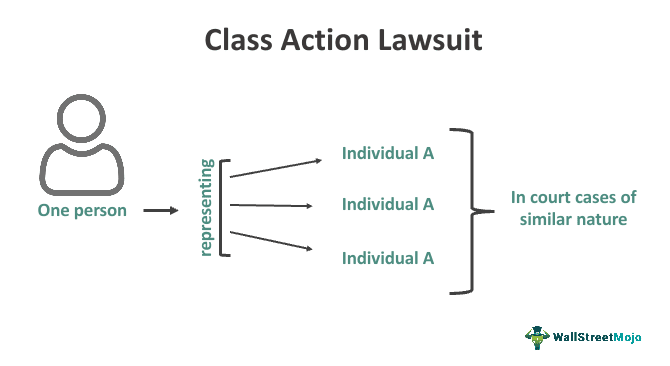Trick Variables to Think About in Course Action Suits: Insights for Lawyers
Class activity claims can be complex and tough for lawyers to navigate. From class accreditation demands to damages computations and negotiation negotiations, there are a number of crucial factors that require to be carefully taken into consideration. Recognizing these variables and their ramifications is essential for lawyers intending to effectively represent their customers in course action lawsuits. By diving right into the details of course action litigation, this conversation aims to offer beneficial insights for legal representatives looking for to navigate this detailed legal landscape.
Class Qualification Requirements
To wage a class activity legal action, attorneys should browse through a collection of rigorous class accreditation needs. Course accreditation is an essential phase in the litigation procedure that identifies whether a team of complainants can be accredited as a course and wage their cases collectively. These demands serve to make sure that course activities are proper and reliable systems for solving conflicts entailing many complainants.
Among the key requirements for class qualification is numerosity. This criterion demands that the course be so many that joinder of all members is unwise. While there is no set mathematical threshold, courts usually take into consideration a class with greater than 40 participants as adequately many. Additionally, commonness is an additional necessary consider course accreditation. It calls for that there are inquiries of legislation or reality common to the class, which need to predominate over private concerns.
Adequacy of representation ensures that the agents will rather and sufficiently secure the rate of interests of the course members. A class action should likewise satisfy the need of supremacy, implying that a class action is a remarkable technique for adjudicating the conflict compared to other readily available methods.
Navigating through these class qualification needs can be complicated and tough for attorneys. Understanding and meeting these requirements are important to successfully seek a course activity legal action on part of a group of complainants.

Commonality of Cases
The following essential factor to take into consideration in the class qualification procedure is the commonness of claims amongst the complainants. Commonness describes whether the course participants share similar lawful issues and inquiries of truth that can be dealt with collectively. To put it simply, it is required to determine if there are typical concerns of legislation or fact that are main to the lawsuits and that predominate over any type of individual concerns.
To establish commonality, the complainants have to show that there are lawful or valid problems that are common to the entire class. This can be achieved by identifying a typical program of conduct or an usual legal theory that underlies the cases (Class action lawsuit). The presence of usual questions is very important due to the fact that it promotes judicial efficiency and economic situation by enabling a single choice to settle the problems for the whole course
Nonetheless, it is very important to keep in mind that the commonality requirement does not require that all the individual cases equal. Differences in problems or private conditions do not always beat commonality if there are still usual concerns that bind the course together.

Problems Computations
One crucial element to take into consideration when calculating problems in class action lawsuits is the accurate assessment of financial losses incurred by the class participants. In order to determine the proper amount of payment, it is required to assess the level of harm endured by each person within the class. This can be an intricate job, as it requires a comprehensive evaluation of various factors, such as the nature and period of the harm, the financial influence on the affected people, and any various other appropriate considerations.
When examining financial losses, it is vital to think about both the indirect and straight problems suffered by the class participants. Direct damages describe the actual out-of-pocket expenditures sustained as a result of the offender's activities. These may include clinical expenses, residential property damage expenses, or any type of various other tangible economic losses. On the other hand, indirect damages encompass the intangible losses that are more difficult to quantify, such as psychological distress, loss of track record, or reduced high quality of life.
To compute problems precisely, attorneys should collect extensive proof, including financial documents, professional point of views, and statements from the course members. They might also require to engage economic and economic professionals that can supply insights right into the long-term monetary effects of the harm experienced.
Negotiation Settlements
During settlement arrangements, lawyers should involve in tactical and cautious conversations to reach a mutually acceptable resolution for all events involved in the course action suit (Class action lawsuit). Negotiation arrangements are a vital stage in the lawsuits procedure, where the events attempt to reach a compromise without mosting likely to test. These arrangements require lawyers to use their negotiation skills, legal expertise, and understanding of the case's weak points and strengths
One important element to think about throughout negotiation arrangements is the potential risks and expenses related to proceeding to trial. Attorneys need to thoroughly assess the likelihood of success at trial and weigh it against the possible advantages of a negotiation. They ought to likewise think about the potential time and sources that would be required to go through a test, along with the possible adverse attention that might result from a public test.
An additional key factor is the interests and problems of the course participants. Attorneys need to recognize what the course members really hope to achieve through the legal action and how a settlement can resolve their complaints. By thinking about the class participants' viewpoints and speaking with them throughout the negotiation procedure, attorneys can better support for their rate of interests and guarantee that any settlement gotten to is reasonable and adequate.
In addition, lawyers must be prepared to work out with my sources the opposing celebration and their lawful representatives. This requires a deep understanding of the toughness and weaknesses of both sides' arguments and a desire to compromise. Knowledgeable mediators can leverage this understanding to discover commonalities and craft imaginative options that meet the requirements of all parties included.
Effective Client Depiction
To efficiently represent their customers in class activity legal actions, attorneys have to have an extensive understanding of the instance and carefully advocate for their clients' passions. Efficient client depiction calls for attorneys to develop open lines of communication and maintain a solid attorney-client partnership throughout the whole lawsuits process.
Most importantly, legal representatives must completely analyze the see page truths, lawful concerns, and potential risks connected with the instance. This consists of conducting an in-depth examination, reviewing relevant files, and talking to experts if needed. By obtaining a deep understanding of the instance, lawyers can develop a strategic method tailored to their customers' demands and goals.
Moreover, legal representatives must proactively advocate for their clients' interests during all stages of the claim. This includes drafting persuasive lawful arguments, conducting detailed study, and offering engaging proof to support their clients' claims. Lawyers ought to also stay informed about current growths in course action law and utilize this understanding to enhance their clients' placements.
In enhancement to lawful advocacy, effective customer representation involves offering regular updates, addressing questions, and addressing any type of worries that clients might have. Legal representatives ought to be proactive in maintaining their clients educated regarding the progress of the instance and any type of significant growths that may impact the outcome.
Inevitably, efficient client depiction requires legal representatives to be persistent, receptive, and committed to safeguarding their customers' legal rights and interests. By taking on a client-centered technique, attorneys can make best use of the possibilities of attaining a positive end result in class activity lawsuits.
Verdict
Finally, attorneys associated with course action claims need to take into consideration vital elements such as class qualification needs, the commonality of claims, damages calculations, settlement negotiations, and efficient customer why not find out more depiction. By carefully dealing with these elements, lawyers can boost their opportunities of success in course activity legal actions and ensure that the interests of their clients are protected.
Comprehending these variables and their implications is essential for attorneys aiming to efficiently represent their clients in class action lawsuits.To proceed with a course activity legal action, legal representatives have to navigate with a collection of rigid course certification needs. Course qualification is a critical stage in the lawsuits process that identifies whether a group of plaintiffs can be accredited as a class and proceed with their cases jointly. A class action have to additionally please the demand of superiority, meaning that a course activity is an exceptional method for settling the conflict contrasted to various other offered methods.
One critical facet to think about when calculating problems in class action legal actions is the precise assessment of economic losses incurred by the course participants.